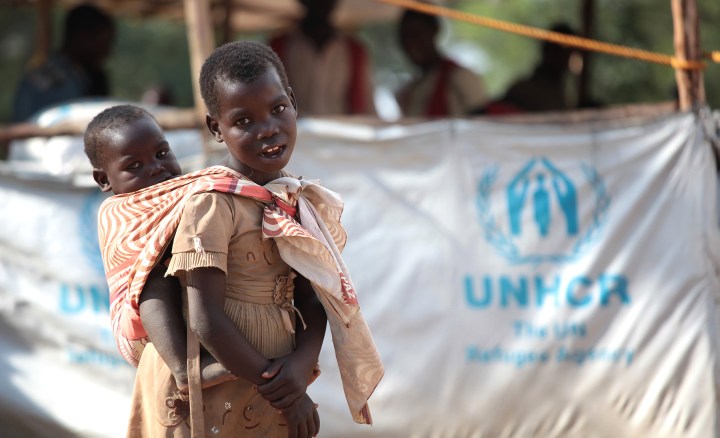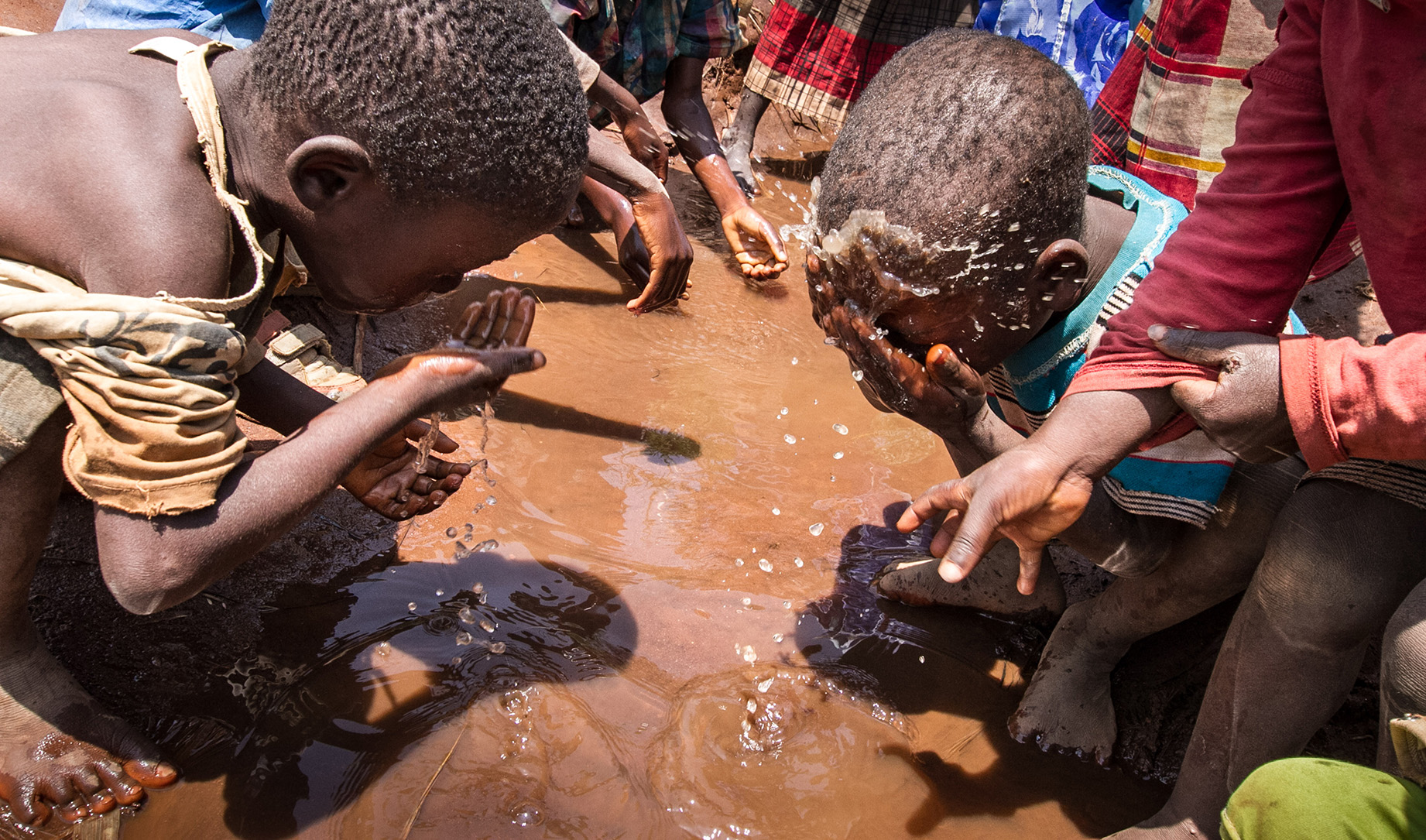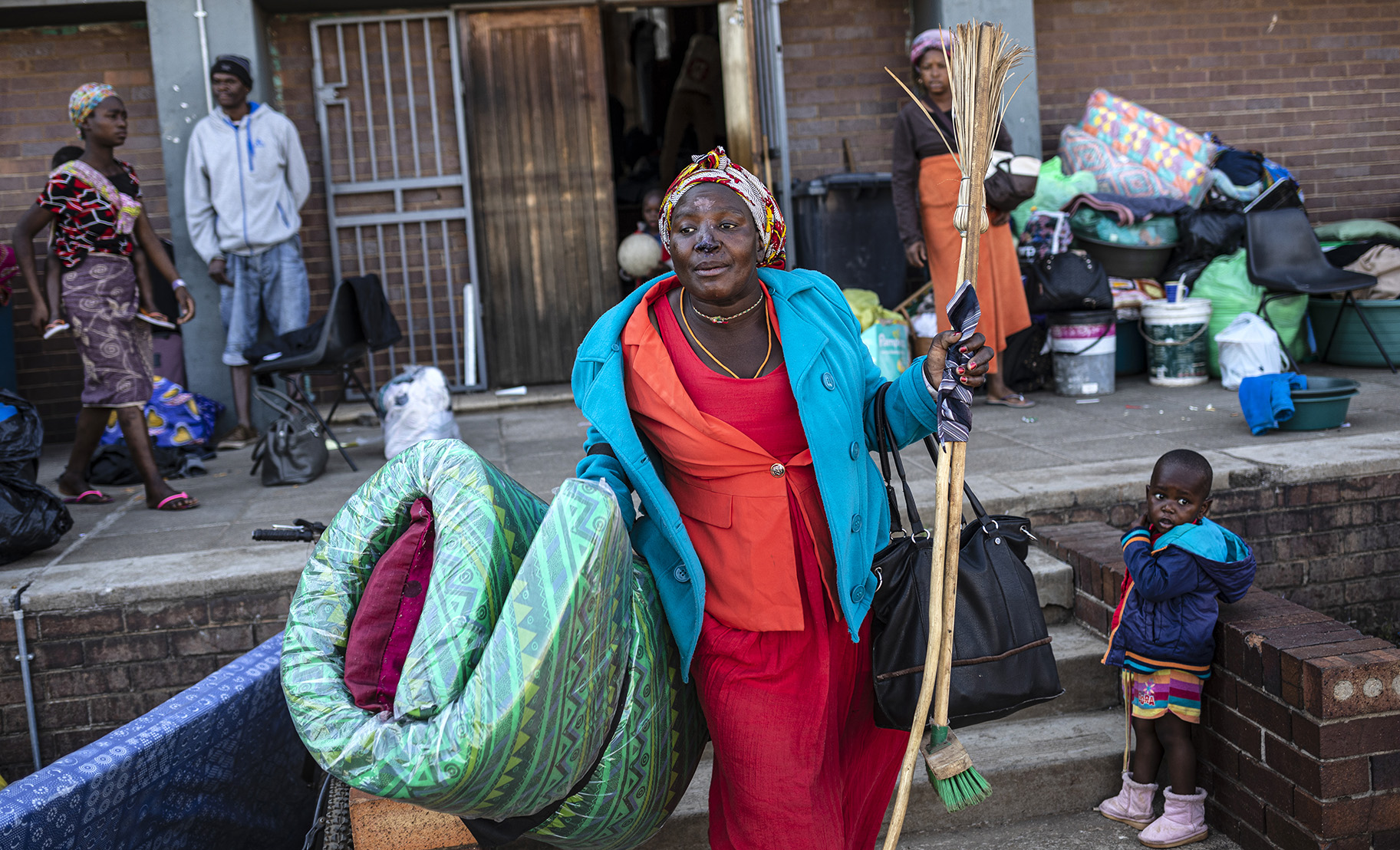PLIGHT OF MIGRANTS
Suffering of refugees, asylum seekers compounded when their socioeconomic rights are denied, say experts

While important strides have been made in international law towards the realisation of the rights of refugees and asylum seekers, recognition of their socioeconomic rights remains a great challenge at national level in Africa, say experts.
‘There are no reasons for one to want to be a refugee. So, because being a refugee is caused by circumstances beyond what the refugees can control, then it means that interventions have to be in place to ensure that their socioeconomic rights are also upheld,” said Dr Angela Nkatha Mutema, a lecturer at the Jomo Kenyatta University of Agriculture and Technology in Kenya.
Nkatha Mutema was speaking during a webinar, hosted by the Socio-Economic Rights Project in the Dullah Omar Institute at the University of the Western Cape, on the barriers to the realisation of the socioeconomic rights of refugees and asylum seekers, and the opportunities that exist to overcome them.
Dr Gerard Kamga, a senior lecturer in the law faculty at the University of the Free State, and Dr Callixte Kavuro, an attorney and postdoctoral research fellow in the Department of Public Law at Stellenbosch University, also spoke during the webinar.
The situation in Malawi
Nkatha Mutema focused on the factual and legislative aspects surrounding the realisation of the socioeconomic rights of refugees in Malawi. She explained that she chose to focus on Malawi because of statistics from the United Nations High Commissioner for Refugees (UNHCR) which “showed that Malawi is home to over 51,000 refugees and asylum seekers as of 31 August 2021, and that the main refugee camp, Dzaleka, was initially designed for 10,000 persons, but it stands at 51,415”.
Such numbers posed a serious health risk during the Covid-19 pandemic, when the Malawian government had issued a directive that all refugees and asylum seekers who left the camp had to return within 14 days or face eviction since they posed a security threat.
“As a result of this order, socioeconomic rights were affected because the directive meant that by returning to the camp, refugees and asylum seekers would not be able to carry out their economic activities of the world, and then there would be further congestion at the refugee camp, [which] would affect important rights such as health and also education for the children who were attending school outside the camp,” she said.
The laws of Malawi
The constitution of Malawi “does recognise that customary international law is applicable, and also that the state should actively promote the welfare and development of the people of Malawi by progressively adopting and implementing policies and legislation aimed at achieving goals”, said Nkatha Mutema.
It was also worth noting that Malawi had ratified various international human rights instruments that are crucial to the enjoyment of human rights, such as the UN Refugee Convention, the International Covenant on Civil and Political Rights and the African Charter on Human and Peoples’ Rights.
The respect for human and refugee rights means that the dignity of individuals cannot be assailed.
Malawi also had specific legislation to deal with refugees. The Refugee Act of 1989 provided for the control and administration of refugees. “The Refugee Act does place certain obligations on refugees, such as the fact that they have to subject themselves to the laws or measures regarding the maintenance of public order in Malawi. It observed that this creates an unnecessary burden on the refugee to provide certain facts that pertain to steps taken to maintain public order.”

Newly arrived refugee children wash their faces in a puddle in the Kapise refugee camp in Mwanza, Malawi, on 8 February 2016. Fighting between Mozambique government forces and the Mozambican National Resistance (Renamo) forced 5,000 refugees to flee into neighbouring Malawi, raising concerns about a new refugee crisis in southern Africa. (Photo: EPA / Erico Waga)
The ex parte Nsabimana case
Nkatha Mutema cited the case of Frodovard Nsabimana who claimed he had been granted authority and issued an identity card by the government of Malawi to reside in urban areas. He argued that the time he had been given to return to the camp was insufficient and that the directive would affect his economic activities and also affect his children who were in school.
The government argued that the permission had been granted on medical, educational and other related grounds to justify residence outside the refugee camp. “The court didn’t necessarily look at the merits or demerits of the case in terms of the socioeconomic rights of the applicant [that] will be affected, but it looked more in terms of the decision-making process about the directive,” she said.
Read more in Daily Maverick: Wholesale review of immigration regimen may see SA (temporarily) exit UN convention on refugees
The court had held that a holdover permit was not an indication of permission to reside outside the camp unless the applicant had applied and obtained an employment permit. “It is observed that this usually places a burden on the refugee to prove that the permit that was given them entitled them to be outside the refugee camp.
“These processes place various impediments to the enjoyment of socioeconomic rights by refugees due to the various administrative hold-ups that affect the final enjoyment of the rights of the refugee.”
The court had also held that the order was not discriminatory or a hindrance to the enjoyment of the right to movement, because it focused more on why the government made the directive and why it was for the maintenance of public order. The court did not envisage how this right would limit socioeconomic rights, such as the right to movement, education and health, said Nkatha Mutema.
“The court stated that the Malawian government reserves the right to designate the place or place of residence of refugees and to restrict their movement, whenever consideration of national security or public order is required. So, it focuses more on the provisions of the constitution and also the Refugee Act without engaging in international principles or international law.”
The way forward
Cases such as this, Nkatha Mutema said, illustrate how the courts have, to a great extent, upheld the position of the government in the use of the encampment policy, which emphasises the promotion and protection of civil and political rights rather than socioeconomic rights.
“These decisions have greatly affected the enjoyment of socioeconomic rights of refugees in Malawi.”
There had been minimal use of international principles in decisions affecting the enjoyment of the socioeconomic rights by refugees generally.
A “deliberate effort” was needed to adopt a human rights approach that made the enjoyment of their socioeconomic rights “a central aspect of every initiative that emphasised enjoyment of the rights of refugees”.
Malawi was a signatory to various international and regional instruments that call for the realisation of the enjoyment of socioeconomic rights. This placed a duty on the state “to engage with the guidance from these instruments, such as the progressive and immediate realisation of socioeconomic rights of refugees”.
Human dignity and the realisation of socioeconomic rights
Kavuro spoke about the link to the right to human dignity in the realisation of rights for refugees in Africa.
“I wanted to highlight that protection of human dignity is a benchmark against which the observance of both human rights and refugee rights are largely measured, monitored and analysed,” he said. “In that context, the respect for human and refugee rights means that the dignity of individuals cannot be assailed as it demands that individuals not be treated with contempt, be dehumanised or subjected to inhuman and degrading treatment”.
Read more in Daily Maverick: Growing mixed migration crisis in East Africa fuelled by lack of political goodwill and consensus
International and national legal orders were constructed on this conviction, and the need to protect human dignity had become central to the international legal order after the two world wars.
Kavuro’s guiding question was whether African countries’ practice of confining refugees to refugee camps for humanitarian relief and assistance is in line with human dignity protection, and if the humanitarian approach is sufficient to protect the human dignity of refugees and asylum seekers.

An unnamed Mozambican carries her belongings to a truck at a refugee camp in Johannesburg on 12 September 2019. The camp was set up for those affected by the recent violence against foreigners living in the country. (Photo: EPA-EFE / Kim Ludbrook)
Equal access
Kavuro outlined various documents that highlight the need for refugees to realise socioeconomic rights, including the 1951 Refugee Convention, the 1969 Organisation of African Unity Convention Governing the Specific Aspects of Refugee Problems in Africa, the Committee on Economic, Social, and Cultural Rights (CESCR), and the African Charter.
“To be able to protect the human dignity of refugees and asylum seekers, the drafters of the 1951 convention found that refugees and asylum seekers must have access to social and economic rights. The 1969 convention adopted a humanitarian approach to access to social and economic rights, and the CESCR and the African Charter use the equality approach.”
Refugees in many cases are objectified because they are treated as things instead of autonomous selves.
The UNHCR and refugee scholars all agreed that the host country had the primary responsibility to protect refugees and asylum seekers, and should be the ones implementing these conventions. “When a country decides to extend a warm welcome to refugees and asylum seekers, then that country must do whatever is possible to protect refugees and asylum seekers,” he said.
Kavuro noted numerous threats to the realisation of socioeconomic rights, including xenophobic sentiments, viewing refugees as economic migrants, refusing to apply a wide definition of “refugee”, and justifying refugee camps.
Deprived and deemed unwanted
“African countries are unable to live up to their commitments to protect the human dignity of refugees because it requires a huge budget beyond the capacity of the host country,” he said.
Refugees were often excluded from local integration, from the economy, and from political and social welfare, which rendered them invisible in host communities. They were also deprived of freedom of movement, and their ability to think, reason and act to advance themselves.
“Refugees in many cases are objectified because they are treated as things instead of autonomous selves. They are often defined as unwanted to people in host societies because of their economic burden and are considered as enemies of national economic growth,” he said.
The Boko Haram insurgency and refugees
Kamga discussed the tensions between national security and refugee protection within the context of the Boko Haram insurgency in the Lake Chad Basin.
Kamga explained Nigeria has been dominated by the violent civil conflict between opposition groups since 2009, which in addition to the 1.8 million people who have become internally displaced within Nigeria, has forced an estimated 200,000 to flee to neighbouring Chad, Cameroon and Niger.
“The declaration of a state of emergency in Borno state, coupled with the escalation of attacks by Boko Haram led to thousands of Nigerians fleeing to Cameroon to seek refuge and there is a clear relationship of cause and effect between the refugee crisis and the Boko Haram insurgency,” he said.
Forced repatriation of refugees from Cameroon
Cameroon has been hosting a substantial population in distress from various parts of the continent for the past decade. As of October 2019, it hosted about 1,575,403 people of concern, including 271,960 Central African and 106,761 Nigerian refugees, said Kamga. However, in September 2018, a report by Human Rights Watch said Cameroon forcefully deported more than 100,000 Nigerian refugees, with some subject to violence by soldiers forcing them to comply.
Authorities argue that the forced return of Nigerian refugees was necessary because it was a matter of national security. “The forced repatriation of refugees amounts to a gross violation of the socioeconomic rights of the refugees, including… the right to housing, food, work, education, healthcare and infrastructure,” he said.
Another key implication of the forced repatriation of refugees is the violation of international, regional and domestic commitments to refugee protection and other key human rights texts. “The gravity of the situation that also results in the violation of core civil and political rights… such as the right to life, freedom from torture and other cruel, inhuman or degrading treatment or punishment, and the right to recognition everywhere as a person before the law.”
Humans first
Kamga said relevant steps need to be initiated to address this issue sustainably, or else it can pave the way to a more complex situation with the potential of affecting everyone, especially within the context of the Boko Haram insurgency. “States must abide by their international, regional and domestic commitments in terms of human rights in general and refugee protection in particular, but the international community must play its part.
“Before becoming refugees, persons in distress fleeing violence and seeking refuge outside their country of origin are first of all humans.” DM




















Comments - Please login in order to comment.